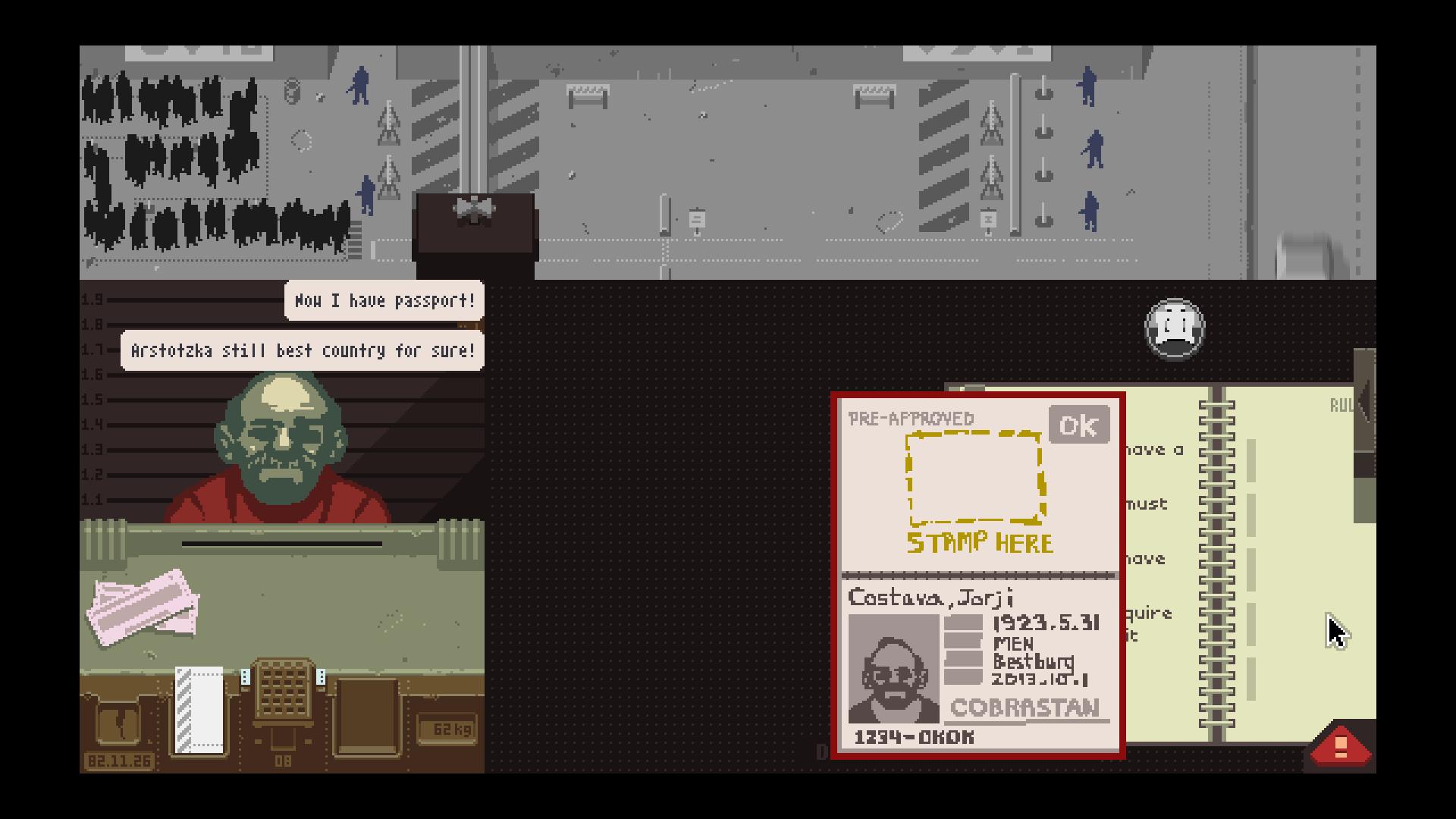
The tasks at hand are more openly banal than those in Train, and here there is a far more specific setting and a somewhat more explicit narrative, but the spirit is very much the same. It casts the player as a border agent who, as the title suggests, must decipher transit documents in order to decide who can gain admittance to the country and who cannot.

Papers, Please takes place in 1982, in the fictional (though Soviet-inflected) totalitarian state of Arstotzka. The game manages to translate a whole lot of Train’s most interesting gestural aspects into videogame form, while also throwing in some clever gut-punches all its own. Dance Dance Revolution and such.īut for my money, Lucas Pope’s “dystopian document thriller” Papers, Please is the best answer that anyone has posed to Bogost’s question. And then he issues something like a challenge: “Is it even possible to translate the gestural ambiguity of such an experience into a video game?” His provisional answers involve changes in input, the literal introduction of gestures. “But Train is a tabletop game, not a digital one,” Bogost remarks.

Bogost sees the game’s stubborn open-endedness as its most remarkable and unsettling success. I gave special attention to Ian Bogost’s account of the game’s “gestural ambiguity.” Train makes its players engage with the dreary moment-to-moment operations of a Nazi beaurocracy, and thereby elicits-what exactly? Empathy with the beaurocrats? Horror at the often abstract and morally detached nature of simply following instructions or simply doing a job? Maybe both, and maybe neither. In my last post, I described my experience playing Train, Brenda Brathwaite’s tabletop game about the banality of evil.


 0 kommentar(er)
0 kommentar(er)
